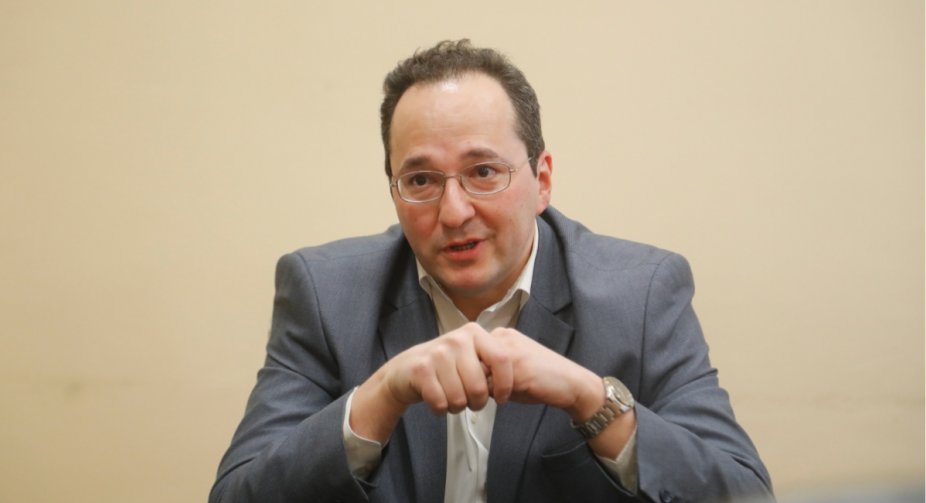“Granting control of the planned Anaklia deep-sea port to China could be a strategic mistake for Georgia. Such a move may inadvertently align us more closely with Russia, posing geopolitical risks”, George Mchedlishvili, an expert in international relations, Associate Professor of the European University, told Front News Georgia in an exclusive interview, also sharing his insights over existing global challenges and their influence on the country.
Front News: The Georgian government is actively enhancing relations with China, having recently signed a strategic partnership agreement. The ruling Georgian Dream party's delegation is currently on a week-long visit to China, emphasizing the significance of these relations. What political and economic outcomes do you foresee for Georgia in this partnership?
George Mchedlishvili: Deepening ties with China is a positive step for Georgia given China's status as the world's second-largest economy. However, we must acknowledge the current international dynamics, resembling a new Cold War where China and the US are the primary players. The risk lies in potential repercussions for Georgia, where economic gains may come at the cost of strained relations with other nations. Caution is essential, and we must safeguard our geopolitical interests without compromising them in pursuit of stronger economic ties with China.
Front News: China has publicly expressed interest in the planned Anaklia deep-sea port in the country’s north-west, indicating ambitions to establish a presence in the Black Sea. What implications might this interest have, and what could be the fate of a project with geopolitical significance?
George Mchedlishvili: The Black Sea region serves as a crucial transport corridor for China, linking Europe and Asia. While China seeks to leverage this route through collaboration with Russia, granting control of Anaklia to China could be a strategic mistake for Georgia. Such a move may inadvertently align us more closely with Russia, posing geopolitical risks.
Front News: Georgia recently attained the status of a candidate for EU membership, receiving nine specific criteria for fulfillment for opening of accession talks. Amidst mutual accusations between the government and opposition over EU commitments, how can both sides ensure Georgia's smooth path toward European integration?
George Mchedlishvili: Responsibility for EU candidacy fulfillment rests on both the government and opposition. Name-calling and accusations are counterproductive. Instead, both parties should collaborate, setting aside differences to implement EU recommendations. Violations, as observed with Charles Michel's agreement [proposed in 2021 to address months-long political standoff in Georgia], should be acknowledged and corrected collectively. Unity across the political spectrum is crucial for Georgia's successful European integration.
Front News: There is still tension in Georgia - Ukraine relations, while air traffic with Russia was restored last year. Two Georgian regions remain occupied by Russia, and the government operates with a policy of non-provocation of the Kremlin. How would you assess this situation?
George Mchedlishvili: Georgia supports international resolutions in favor of Ukraine, although this support may be more political. The presence of many Ukrainians in Georgia is positive, but both countries need to adjust their rhetoric. Recalling the ambassador [by Kyiv in 2022] was not right, and Prime Minister Irakli Garibashvili's statement on non-imposing sanctions on Russia was painful for Ukrainians. The tense rhetoric is unprofitable for both countries. Georgia and Ukraine should understand that they share common goals and both have territorial problems.
Front News: Currently, there are many hotspots globally affecting Georgia. The war in Ukraine, tension in Israel, and Yemen - what role do China and Russia play in these conflicts and others?
George Mchedlishvili: In the Middle East situation, Russia may not directly attack Israel, but it is a significant spoiler. Similar to Viktor Orban in the EU, who is supported by Russia. While Russia and China may not create conflicts themselves, their presence contributes to the continuation of these situations. Eliminating their roles and deterring these players could lead to global peace.
Front News: The current year is crucial with elections planned in Georgia, the European Parliament, and the US. What changes do you foresee for Georgia considering the results of all three elections?
George Mchedlishvili: The geopolitics of our region will undoubtedly be affected and contribute to the overall landscape. We must hope that healthy forces prevail. Today, we see that a correct political vision alone is not enough.
By Tinatin Lobjanidze
